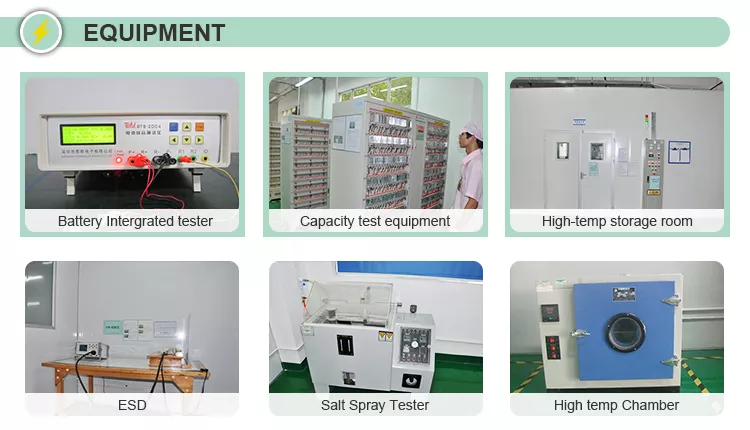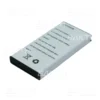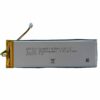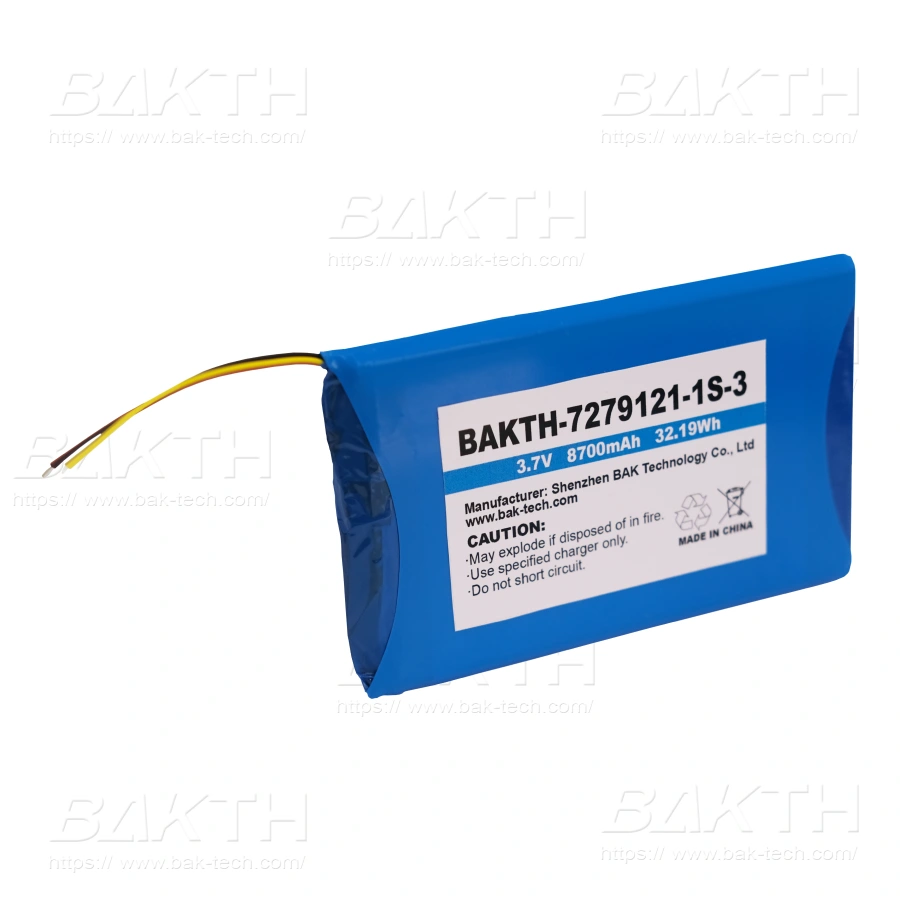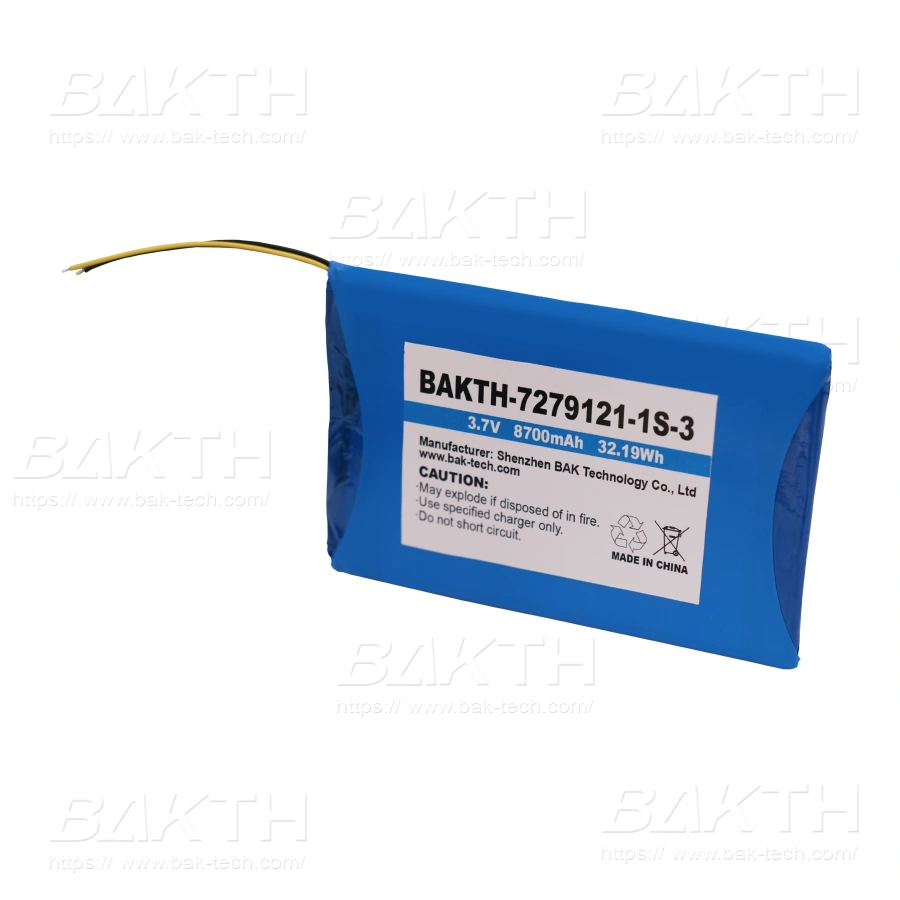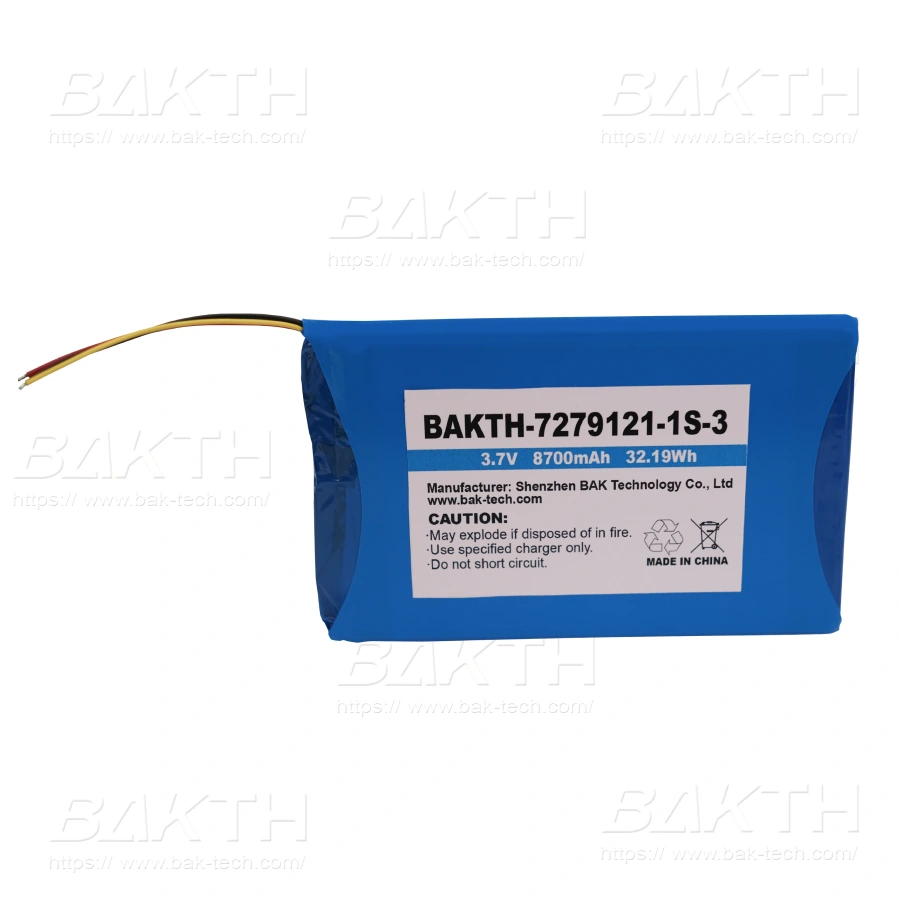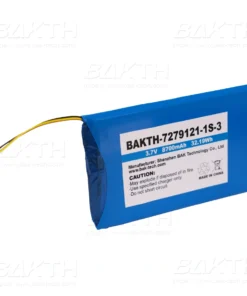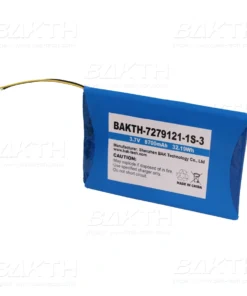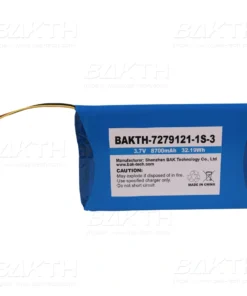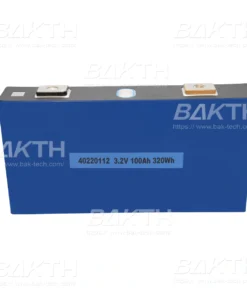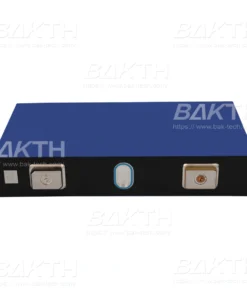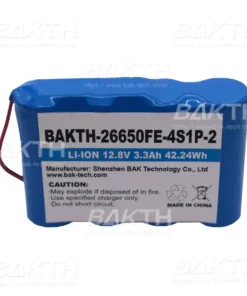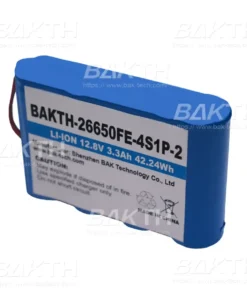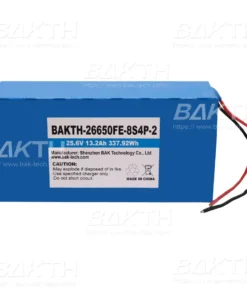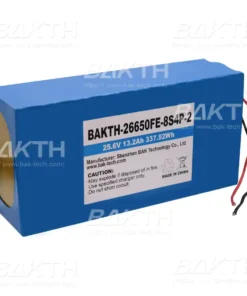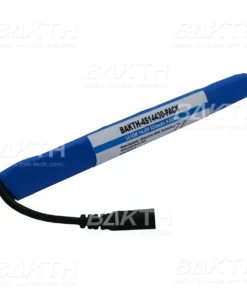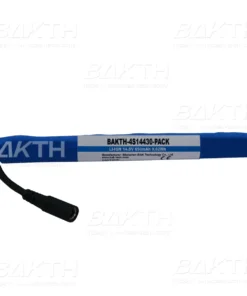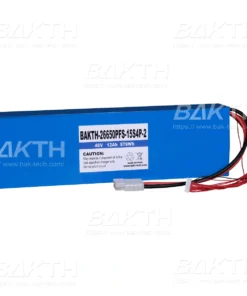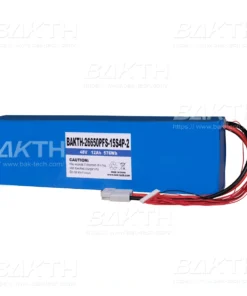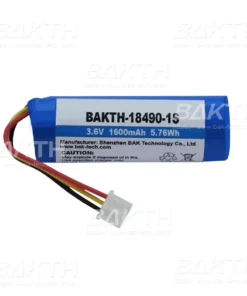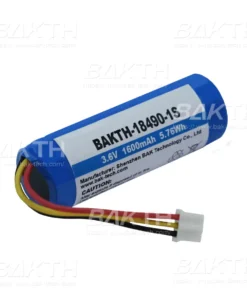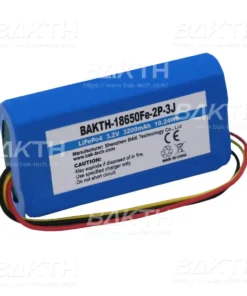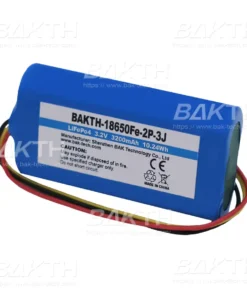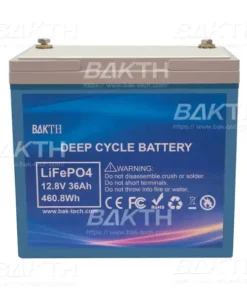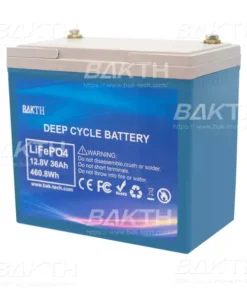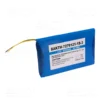BAKTH-7279121-1S-3, 3.7V, 8700 mAh, 32.19 Wh
The BAKTH-7279121-1S-3 3.7 V 8700 mAh 32.19 Wh Lithium ion polymer battery pack exemplifies the pinnacle of modern battery technology. Compared to other types, the 7279121 batteries offer substantial improvements in capacity and durability. The 7279121 batteries type are particularly well-suited for applications in both consumer electronics and medical devices. In consumer electronics, they provide the high energy density required for longer usage times without frequent recharging. In medical devices, their reliability and compact size are crucial. Devices such as portable monitors benefit greatly from these batteries’ consistent performance. Diagnostic equipment relies on their reliability for accurate readings. Infusion pumps, crucial in medical settings, are enhanced by their safety features. Each of these devices demands dependable power.
The 7279121 batteries meet these needs effectively. Traditional lithium-ion batteries don’t use a solid or gel-like electrolyte – this is what makes our LiPo battery so special. It’s a 3.7 V LiPo battery, which stands for lithium polymer. This difference enhances safety, reducing the risk of leakage. Plus, they are more flexible, allowing for innovative designs. You wouldn’t want your devices to be stuck with old tech, we neither, because we care. And in terms of protecting the nature, more energy efficient and long-lasting solutions are more environment friendly. This battery only has one cell, therefore it is 1S1P. The ‘1S’ in 1S1P stands for one cell in series. This single cell provides a stable voltage of 3.7 V. Obviously, having one cell in series means all the voltage comes from that single cell. Now, ‘1P’ means one cell in parallel, and the battery’s capacity is the capacity of this exactly one cell. It is 8700 mAh. Just to mention, “mAh” stands for milliampere-hours – the amount of charge the battery can hold.
For example, modern smartphones’ batteries are somewhat about 4000-5500 mAh. In simpler terms, this simple design ensures your devices run smoothly. The single series cell provides the necessary voltage. The single parallel cell provides ample capacity. Together, they create a balanced and efficient power source. This design avoids the complexities of multiple cells while delivering high performance. It is a clever way to maximize both voltage and capacity in a compact form. Your devices, thus, operate without a hitch, thanks to this well-thought-out design. When we consider the size, the BAK Technologies BAKTH-7279121-1S-3 measures 8.1 mm by 80 mm by 127 mm. It is a testament to human ingenuity.
With a weight of 147 grams, it embodies simplicity and efficiency. Such compactness does not come easily. It requires careful thought and meticulous design. The slim profile is a boon for many. It allows for easy integration into portable devices. This battery does not burden the user. Instead, it empowers them. It provides the necessary energy without the excess weight. This is how technology should serve humanity. Light, efficient, and unobtrusive. You wouldn’t brag about bulky batteries, right? This elegant combination of size and power is ideal for the sleek, modern gadgets we all love. Durability is a key metric for any battery, and the 7279121 batteries excel with a cycle life exceeding 300 cycles. Each charge and discharge cycle rigorously tests the battery’s resilience. Certifications these batteries carry aren’t mere formalities.
They are rigorous guarantees of quality and safety, ensuring that users can rely on their consistent performance. Because who wants to risk reliability? This 3.7 V 8700 mAh 32.19 Wh Lithium ion polymer battery pack operates with a max charging voltage of 4.2 V. The cut-off voltage is 2.8 V. These specs are crucial for battery health. The maximum charging voltage ensures full capacity without overcharging risks. Overcharging, after all, is not fun. The cut-off voltage prevents deep discharging, protecting the battery from permanent damage. In the field of battery engineering, these voltage specifications are vital. Overcharging can cause excessive heat, leading to battery failure or even fire. Deep discharging can form dendrites, which can pierce the internal layers. These cause short circuits. Ensuring these specifications maintain battery health and longevity is paramount. Many folks ask about the term ‘C’ in battery charging. ‘C’ indicates the charge rate relative to the battery’s capacity. A 1C rate charges the battery in one hour. A 0.5C rate takes two hours.
It’s essential to understand this for safe charging. You don’t want to damage your cells, right? Maintaining the appropriate ‘C’ rate preserves battery performance.
* Max charging voltage: 4.2V
* Cut-off voltage:2.8V
* Max constant charging current: 0.5C
* Max constant discharging current: 1C;
* For different portable devices of consumer and medical application
| Weight | 147 g |
|---|---|
| Dimensions | 8 × 80 × 127 mm |
| Type | LiPo |
| Power Capability | 8700 mAh |
| Power Capacity | 32Wh |
| Voltage | 3.7V |
| Max. charging voltage | 4.2V |
| Cut-off voltage | 2.8V |
| Cycles Life | 300+ |
- There is a risk of safety accidents using unqualified battery, so, adapting qualified battery cells, full function PCB/BMS and with strict QC procedure are key elements of a qualified battery, and these elements are our essential requirements in designing and producing batteries.
- Strict control for cleanliness in dust-free workshop from IQC,IPQC to OQC, we control every step strictly CE, UL, SGS, FCC, ROHS and ISO9001: 2000 certified.

